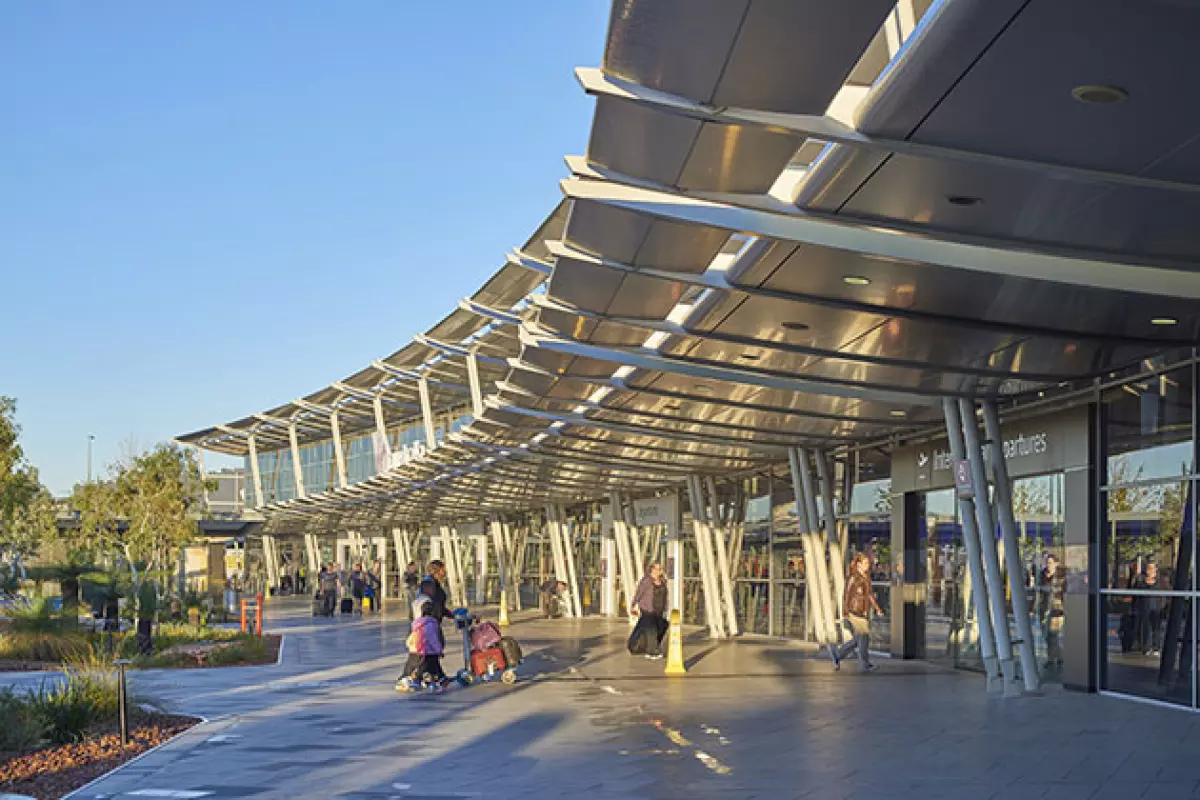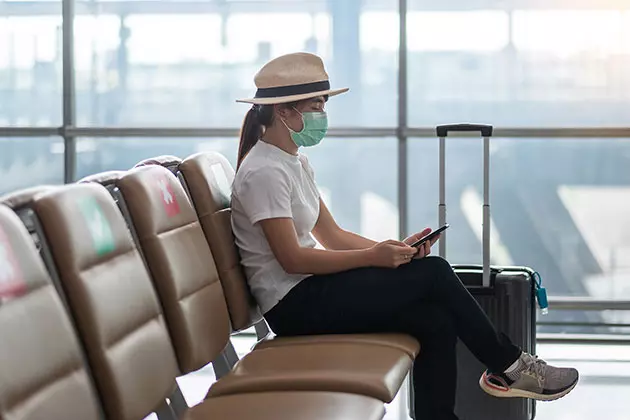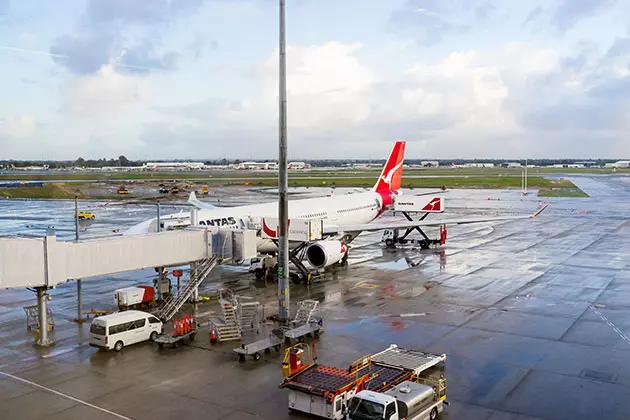By: Susan Gough Henly
The world is slowly opening up again, allowing us to embark on exciting travel adventures and reconnect with loved ones. However, planning a trip has become more complex due to the ever-changing rules and regulations surrounding COVID-19. To help you navigate this new travel landscape, the Australian Government's Smartraveller site offers a step-by-step guide, while also providing the latest travel updates.
It is crucial to stay informed about the latest government updates before and during your trip, as rules and regulations are subject to change. To stay on top of the latest developments, it is highly recommended to enlist the services of a travel agent. Travel agents are at the forefront of monitoring changing COVID travel rules and can assist you in amending your plans, as well as provide essential information for travel insurance claims. Speaking of travel insurance, it is now more important than ever to have coverage that includes protection against COVID-19-related incidents.
What Does "COVID-19 Cover" in Travel Insurance Really Mean?
Securing travel insurance with COVID-19 coverage has become essential, as the pandemic has the potential to disrupt travel in numerous ways. However, it is crucial to check the fine print of your policy to understand what is covered and what is not. Some destinations may even require compulsory travel insurance coverage. RAC offers travel insurance underwritten by Tokio Marine & Nichido Fire Insurance Co., Ltd., which has seen high demand since its introduction in November 2021, with over 92% of customers opting for COVID cover. The policy extends coverage to new variants of COVID, as well as other epidemics or pandemics.
It is important to note that you must purchase the insurance before leaving Australia. RAC offers three levels of travel insurance, but only the most comprehensive option includes COVID coverage. While vaccination is not mandatory for coverage, it is necessary to follow government and airline vaccination requirements to make a claim. With COVID cover, your travel insurance policy typically includes coverage for medical expenses, quarantine costs, rescheduling or cancellation fees due to COVID-19-related incidents, such as testing positive for the virus or experiencing disruptions caused by someone else's diagnosis.
 Travellers outside Perth airport
Travellers outside Perth airport
Making a Travel Insurance Claim for COVID Disruptions
Once your COVID case is deemed coverable, Tokio Marine Insurance goes above and beyond to ensure your well-being. They offer unlimited coverage for COVID-related medical expenses overseas, as well as a 24-hour emergency assistance line staffed by dedicated case managers who will coordinate with foreign hospitals and doctors. If necessary, they will arrange your repatriation and cover additional accommodation expenses if you contract COVID-19 while abroad and cannot return to Australia as planned.
Tokio Marine also automatically extends your travel insurance at no extra cost until you can safely return home. They provide coverage for quarantine, cancellation, and rebooking costs, as well as amendments or cancellations of other parts of your journey. In addition to COVID-related coverage, their policies include basic travel insurance benefits such as lost or stolen luggage, travel delay or cancellation, and more. However, it's important to note that medical expenses related to COVID-19 are only covered for international travel, while in Australia, only cancellation or amendment costs due to COVID-19 are covered.
What is and Isn't Covered by Travel Insurance with COVID Cover
It's essential to be aware of what is covered and what is not under travel insurance with COVID cover. If Smartraveller issues a "Do Not Travel" warning for a country, and you ignore this advice and enter that country, your COVID insurance will not be valid, and all benefits under the travel insurance policy will be void. However, if the "Do Not Travel" status is applied while you are already in the country, your COVID cover remains available. If a "Do Not Travel" warning is issued for a country after you have purchased your travel insurance but before your departure, the policy will cover your cancellation costs. On the other hand, if you decide to cancel your travel due to other Smartraveller advice levels such as "Reconsider Your Need to Travel" or "Exercise a High Degree of Caution," it will be considered a change of mind, and cancellation coverage will not be available.
Some countries, including Fiji, Thailand, and Singapore, mandate COVID travel insurance for visitors. To meet this requirement, you can provide a copy of your RAC Travel insurance policy, which demonstrates the unlimited coverage for COVID medical expenses overseas. While Medicare has reciprocal agreements with certain countries, it is crucial to understand that this only provides basic public health care coverage. Comprehensive international travel insurance is still necessary, especially for private hospitalization and the additional benefits mentioned earlier. Complimentary COVID insurance may be offered by some tour operators, airlines, or credit card companies, but these options may come with limitations and exclusions, making them insufficient for comprehensive coverage.
 Travellers wearing masks in the airport
Travellers wearing masks in the airport
Ensuring a Safe and Healthy Trip during COVID Times
Apart from travel insurance, there are several steps you can take to stay healthy during your travels. It is recommended to consult your GP at least six weeks before your trip to receive booster shots, including a second booster for the immune-compromised and those over 65. Additionally, ensure you have an ample supply of necessary medications and get vaccinated against the flu and other diseases specific to your destination. It is also advisable to expand your travel health care kit to include surgical P2 respirator or N95 masks, RAT tests, hand gel, wipes, and insect repellent. Follow local mask-wearing rules and practice physical distancing, even if it is not explicitly required.
Maintaining good hygiene practices, such as frequent handwashing and being cautious about contaminated food and water, is crucial. Lastly, taking out travel insurance with COVID cover is highly recommended. Studies have shown that people tend to engage in riskier behaviors while traveling, making comprehensive coverage essential. Remember that being stranded overseas due to COVID-related issues can result in additional costs and stress.
 COVID-19 testing at LAX airport
COVID-19 testing at LAX airport
Smooth Travels from Departure to Arrival
Before departing, check Smartraveller's global COVID-19 health advisory and travel advice for your specific destinations and transit locations. Familiarize yourself with the risks associated with COVID-19 in your destination and know what to do if you test positive while traveling overseas. Additionally, stay updated on the re-entry and quarantine requirements set by the Australian government.
Ensure you have all the necessary documentation for your trip, including your International COVID-19 Vaccination Certificate (ICVC) and any additional COVID-19-related papers required by your destination. If a negative COVID-19 test result is necessary, book the required test type within the specified timeframe and carry printed copies of both your ICVC and negative test results.
When passing through Australian border control, present your International COVID-19 Vaccination Certificate and negative test results, if required. If you are not fully vaccinated, provide proof of exemption and negative test results, if necessary.
While traveling, stay updated with COVID-19-related rules and restrictions at your destination and be prepared to adapt if necessary. It is also important to familiarize yourself with the entry requirements of the Australian state or territory where you will be arriving, as quarantine and health-related regulations may have changed during your absence.
 Woman with mask sitting at the airport
Woman with mask sitting at the airport
Returning to Australia: Navigating Border Control
Upon returning to Australia, it is mandatory for all passengers arriving by air to submit a Digital Passenger Declaration (DPD) within 72 hours prior to departure. This declaration includes your contact details, vaccination status, COVID-19 test result, travel history, and awareness of the quarantine and testing requirements of the state or territory where you will be landing.
Before departing, check the exit requirements of your location, as well as the entry and exit requirements of your transit locations and the Australian state or territory where you will be arriving. Quarantine and health-related requirements are regulated by state or territory governments and may have changed since your departure.
As of now, the Federal Government no longer requires a negative pre-departure test to enter Australia. However, unvaccinated Australians returning to Western Australia will be subject to seven days of hotel quarantine at their own expense.
 Qantas at the airport
Qantas at the airport
Wrap Up: Prioritize Safety and Preparedness
In conclusion, as travel gradually resumes, it is important to prioritize safety and be prepared for potential disruptions caused by the ongoing pandemic. Acquiring travel insurance with COVID cover is a fundamental step in safeguarding your journey and peace of mind. Additionally, staying informed about the latest travel advisories, adhering to safety protocols, and seeking guidance from trusted sources such as Smartraveller will help ensure a smooth and enjoyable travel experience.
Whether you're embarking on an international adventure or exploring your own backyard, be proactive in protecting your health and well-being. By following these guidelines and taking necessary precautions, you can confidently enjoy your travels while minimizing the risks associated with COVID-19.
















